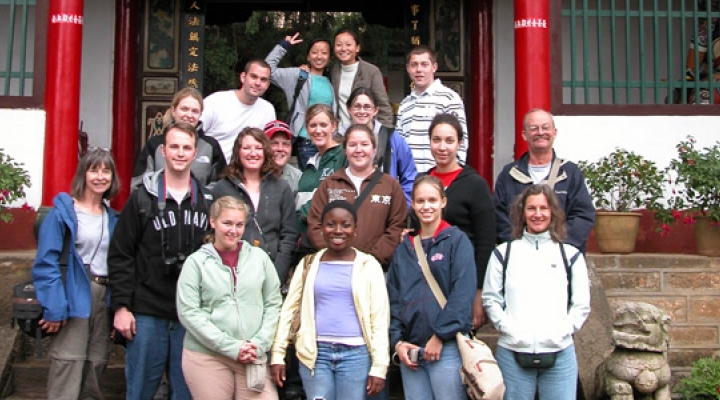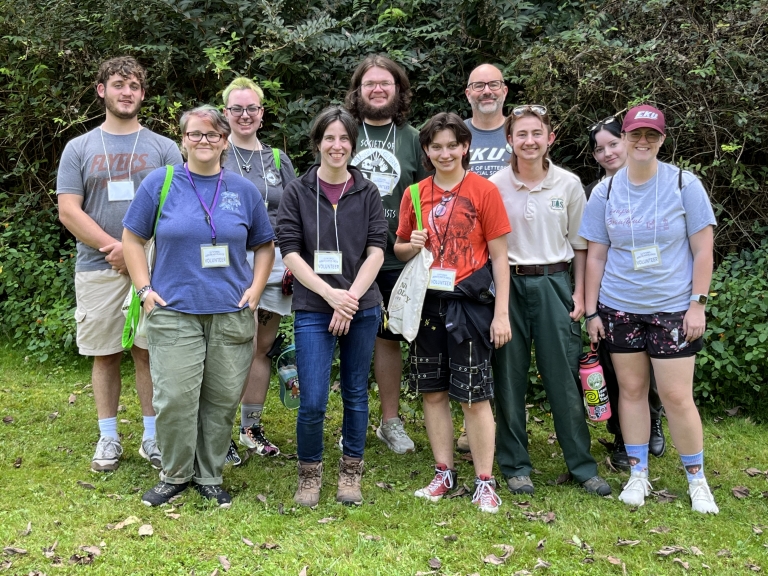Cultural Anthropology

Cultural Anthropology is the study of human society and culture. Anthropologists in this discipline use ethnography and ethnology to examine social and cultural similarities and differences. Cultural anthropologists study humans as close as your own neighborhood, and as far as the most remote village or town.
At Eastern Kentucky University, students explore diverse topics, such as contemporary Native American life; the role of language in culture and society; the global food system, sustainability, and food cultures; cross-cultural healing practices; and the role of power in human societies.
Students acquire research competencies in ethnography, participant observation, taking field notes, interviewing, transcribing, qualitative data analysis, and written and oral commnication as well as skills in collaboration, critical thinking, cultural competency, and ethical conduct.
COURSES IN CULTURAL ANTHROPOLOGY
(consult the University catalog for course descriptions)
- ANT 120: Introduction to Cultural Anthropology
- ANT 311: Anthropology of Religion
- ANT 330: Native American Cultures
- ANT 344: Applied Anthropology
- ANT 345: Language and Culture
- ANT 346: Anthropology of Food
- ANT 375: Selected Topics in Cultural Anthropology
- ANT 377: Medical Anthropology
- ANT 395: History and Theory of Anthropology
COURSE DESCRIPTIONS
Introduction to Cultural Anthropology: Gen Ed Element 5b. Explanation of culture and related concepts. Development of generalizations concerning social, economic, political, and ritual organization, based chiefly on comparative study of various societies. Includes a brief survey of linguistics.
Anthropology of Religion: Anthropological exploration of religious belief systems across cultures and time. Analyzes the intersection of religion with subsistence strategies, economic systems, political systems, and gender structures. Topics include magic, witchcraft, sorcery, monotheism, polytheism, possession, and health.
Native American Cultures: Gen Ed Element 6. Explores the cultural diversity of American Indians by examining their historical and contemporary lives. Focus on cultural similarities and differences of American Indian groups living in ecologically diverse areas.
Applied Anthropology: Comprehensive survey of applied anthropology theories, methods, and approaches. Based on extensive cross-cultural case materials, examines the historical, current, and potential applications of anthropological perspectives to social problems.
Language and Culture: Sociocultural perspective on the study of language. Cross-cultural topics include the role of language in creating and maintaining cultural norms in gender, Indigeneity, ethnicity, class and power, and race and racism.
Anthropology of Food: Examines food’s role and impact on humankind through archaeological, biological, cultural, and linguistic anthropological perspectives. Includes issues related to environmental sustainability, sociality, and food’s intersection with gender, race, ethnicity, class, and Indigeneity.
Medical Anthropology: Exploration of health, healthcare, and healing cross-culturally. Through medical anthropology theory and methods, apply critical perspectives to the health status of populations, the distribution of health in societies, and health outcomes.
History and Theory in Anthropology: A capstone investigation of past and present practices and theories used to interpret data from each of anthropology’s four subdisciplines. Professionalism in anthropology also integrated.


